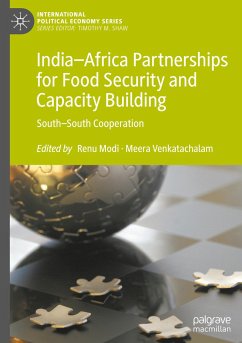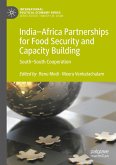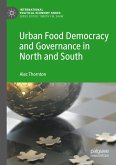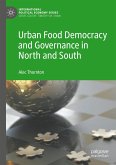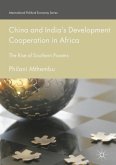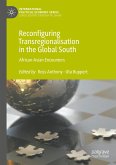This compendium showcases the ongoing trends and challenges in South-South cooperation between India and select countries in Africa, for achieving food security and poverty reduction. Scholars and practitioners share diverse perspectives on the role of India's development compact; aid, trade, private sector driven Foreign Direct Investments (FDIs), and concessional Lines of Credit (LOCs) to the agricultural and agro-processing sector in Africa. India- Africa cooperation also underscores that the sharing of knowledge and capabilities- technical and financial, along with North- South partnerships- through trilateral and multilateral mechanisms, can upscale agriculture and agro-processing sectors to centre stage the food security agenda and reduce poverty. Arguments made through the volume critically highlight hegemonic neo-liberal economic policies, structural adjustment programmes, import substitution practices, and the denationalization of food production, and illustrate the need for sustainable and cost effective agro-ecological practices, in the face of ongoing global challenges, such as the climate emergency and degradation of biodiversity and habitats.
The axial questions addressed are; how does cooperation between countries of the Global South- India and Africa - impact intra-South trading, capacity building, and the investment landscape. Scientists, academics, development professionals, government officials, NGOs and international organizations, offer the readers; empirical case studies, policy perspectives, the limitations and challenges, and the way forward in an analytical manner.
The axial questions addressed are; how does cooperation between countries of the Global South- India and Africa - impact intra-South trading, capacity building, and the investment landscape. Scientists, academics, development professionals, government officials, NGOs and international organizations, offer the readers; empirical case studies, policy perspectives, the limitations and challenges, and the way forward in an analytical manner.

